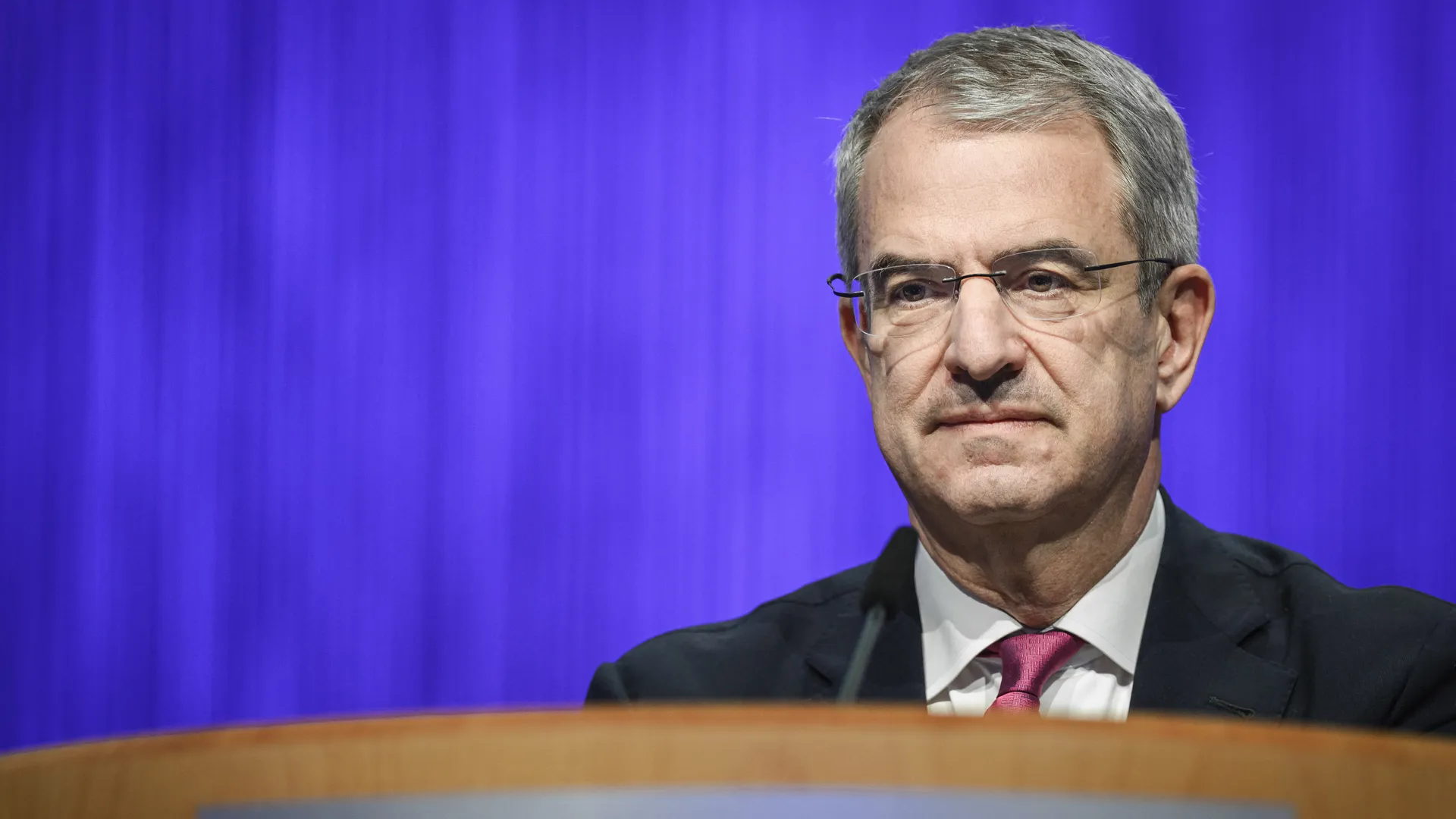Nestlé CEO Laurent Freixe ousted over an inappropriate workplace relationship with a subordinate. Explore full details, Indian impact, investor insights, analyst opinions, FAQs & more.
When Laurent Freixe, the CEO of Nestlé, one of the world’s largest food and beverage companies, was abruptly ousted over an inappropriate relationship with a subordinate, it sent shockwaves across the corporate world. Nestlé’s announcement, citing violation of workplace ethics and nondisclosure, underscores how seriously multinationals now take corporate governance and ethical conduct at the highest levels.
For India, the incident resonates deeply. Nestlé is not just another MNC here—it is an integral part of Indian households with Maggi noodles, Nescafé coffee, KitKat chocolates, Munch, Cerelac, and dairy products shaping the daily lives of millions.
This article takes a deep dive into the ouster of Laurent Freixe, its global and Indian implications, governance lessons, investor scenarios, tabular insights, analyst views, consumer impact, FAQs, and real-world examples.
1. What Happened: The Laurent Freixe Case
Nestlé confirmed that CEO Laurent Freixe was removed from his position after an internal probe revealed:
- Inappropriate workplace relationship with a subordinate.
- Failure to disclose the relationship as required by company policy.
- Violation of Nestlé’s Code of Business Conduct.
Quick Facts
| Detail | Information |
|---|---|
| Executive Involved | Laurent Freixe, Nestlé CEO |
| Reason for Ouster | Inappropriate relationship with subordinate |
| Policy Violation | Nondisclosure & conflict of interest |
| Immediate Action | Dismissal without severance benefits |
| Replacement Announced | Interim leadership in place |
The board emphasized that this move was necessary to preserve corporate integrity and maintain investor confidence.
2. Why It Matters Globally
Nestlé’s leadership shake-up is not just about one individual—it impacts:
- Investor confidence in one of the world’s biggest FMCG giants.
- Employee morale, as it reinforces accountability across all levels.
- Corporate reputation, particularly in sensitive markets.
- Governance standards, setting a precedent for other global companies.
3. Indian Context: Why This News Hits Home
Nestlé India is a key arm of the global Nestlé empire, contributing significantly to revenues. With Maggi noodles leading the instant food category, and products like KitKat, Munch, Nescafé, and Cerelac dominating shelves, any global leadership disruption naturally sparks concern.
Indian Relevance
- Nestlé India operates under an independent board and management.
- Consumer trust in Maggi and Nescafé remains high despite global controversies.
- Investors in India watch global developments closely, as Nestlé India is listed on the Indian stock market.
Thus, while Indian operations remain steady, the sentiment factor cannot be ignored.
4. Corporate Governance in Focus
Nestlé’s decisive action demonstrates how corporate governance has evolved:
| Governance Element | Nestlé’s Action | Lesson for India |
|---|---|---|
| Workplace Ethics | Strict zero-tolerance enforcement | Ethics override position or influence |
| Conflict of Interest | Immediate ouster for nondisclosure | Transparency is non-negotiable |
| Board Responsibility | Independent directors led investigation | Strong oversight mechanisms are crucial |
| Investor Communication | Clear and quick disclosure to stakeholders | Proactive communication builds trust |
| India Corporate Parallel | Listed firms must strengthen HR compliance | Indian corporates should take a cue |
5. Investor Impact: Short-Term vs Long-Term
The ouster created ripples in the financial markets.
- Global Nestlé Stock: Fell nearly 2% on the announcement day.
- Nestlé India Stock: Saw a slight dip (-0.6%) but recovered as local fundamentals remain strong.
Long-Term Outlook
Despite short-term volatility, analysts predict stability in Nestlé shares within a quarter due to:
- Strong product portfolio.
- Resilient consumer demand.
- Independence of Nestlé India’s operations.
6. Investor Scenarios: What Should You Do?
Scenario A: Long-Term Nestlé India Shareholders
Stay invested. Fundamentals remain strong, and this leadership ouster is unlikely to derail long-term growth in India.
Scenario B: Short-Term Traders
Market volatility may provide buy-the-dip opportunities. Caution advised for short-term trades.
Scenario C: Conservative Investors
Diversify holdings. While Nestlé remains robust, exposure to multiple FMCG stocks ensures balanced risk.
7. Analyst Opinions on the Ouster
- Corporate Governance Analysts: “Nestlé set the right example by acting swiftly and transparently.”
- Market Analysts: “The ouster may cause temporary turbulence, but Nestlé’s global dominance remains unshaken.”
- Indian FMCG Analysts: “Nestlé India’s strong local management and product demand insulate it from global shocks.”
8. Consumer Sentiment in India
Indian consumers are driven by brand trust. Unlike investors, they care more about product availability, safety, and quality.
- Maggi lovers continue to buy despite corporate controversies.
- Parents trust Cerelac for their children.
- Students and working professionals rely on Nescafé and KitKat as everyday staples.
Thus, Nestlé India is unlikely to face a consumer backlash in India.
9. Case Comparisons: Lessons from Other Companies
Nestlé is not the first company to oust a CEO over workplace relationships.
- McDonald’s: In 2019, CEO Steve Easterbrook was fired for violating company policy over a relationship with an employee.
- Intel: CEO Brian Krzanich resigned in 2018 after a similar disclosure issue.
Lesson for India:
Corporate boards, including Indian companies like Infosys, TCS, and Wipro, need to adopt strict global HR and governance practices.
10. Analyst Insights on India’s FMCG Market
India’s FMCG sector is growing at a 10–12% CAGR, with Nestlé India among the leaders.
| FMCG Brand in India | Market Share | Key Strength |
|---|---|---|
| Nestlé India | 60% in noodles | Maggi’s dominance, product trust |
| HUL (Hindustan Unilever) | 50%+ in multiple | Scale & diversified portfolio |
| ITC Foods | 30% in biscuits | Expanding in packaged foods |
| Britannia | 35% in biscuits | Strong bakery products |
Analyst View: “Nestlé India is unlikely to be impacted heavily by Laurent Freixe’s exit, but governance vigilance is a must.”
11. Tabular Snapshot: Nestlé Global vs India
| Metric (2024-25) | Nestlé Global | Nestlé India |
|---|---|---|
| CEO | Laurent Freixe (Ousted) | Suresh Narayanan (Chairman) |
| Annual Revenue | $100+ Billion | ₹18,500+ Crore |
| Headquarters | Switzerland | Gurgaon, Haryana |
| Key Brands | Nescafé, KitKat, Purina | Maggi, KitKat, Cerelac, Munch |
| Stock Price Reaction | -2% | -0.6% |
12. Broader Lessons for Corporate India
- Ethics Over Position – Even CEOs must comply with workplace policies.
- Swift Action Prevents Damage – Quick decision-making boosts investor trust.
- Transparency Builds Confidence – Public communication avoids speculation.
- Cultural Sensitivity in India – Indian corporates must adapt global standards locally.
- Reputation Is Everything – Governance lapses can cost trust faster than financial crises.
13. FAQs (Google-Friendly)
Q1: Why was Nestlé CEO Laurent Freixe ousted?
He was ousted for having an inappropriate workplace relationship with a subordinate and failing to disclose it, violating Nestlé’s ethics code.
Q2: Does this affect Nestlé India operations?
No, Nestlé India functions independently with its own management and remains unaffected in terms of operations.
Q3: How did investors react?
Global Nestlé shares dropped around 2%, while Nestlé India shares dipped slightly but recovered.
Q4: What does this mean for consumers in India?
No direct impact. Products like Maggi, Nescafé, and KitKat remain widely available.
Q5: Have other CEOs faced similar situations?
Yes, McDonald’s and Intel CEOs were also dismissed for policy violations linked to workplace relationships.
14. Conclusion: What This Means for India and Investors
The ouster of Laurent Freixe as Nestlé CEO is a stark reminder that corporate governance, ethics, and transparency matter more than individual leadership positions.
For India:
- Consumers will continue to trust Maggi, Nescafé, and KitKat.
- Investors should see this as a short-term storm with limited long-term consequences.
- Corporate India should take note—global standards of governance and ethics are now expected everywhere.
Nestlé’s swift action may ultimately strengthen its credibility. For Indian investors, this is less a red flag and more a lesson in why governance is as important as growth.







